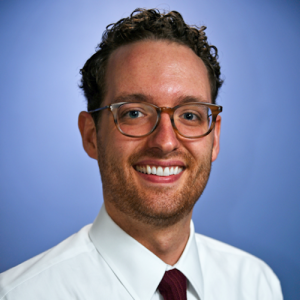“Are you sure I’m not going to break them? I feel bad. But I want to use the bathroom by myself.” A close friend and I had been texting about their child’s separation anxiety, and this was their response when I suggested they use the bathroom alone.
It’s great that my friend wants to protect their child from feeling upset! This is normal and helpful in many situations. But when a child has an anxiety and/or obsessive-compulsive disorder (OCD), a parent’s actions – even with good intentions – can accidentally make things worse. Understanding how parents take part in the anxiety cycle is important in helping kids get better.
What is family accommodation?
Family accommodation means the things family members, including parents, do or don’t do to make children less anxious. My friend, for example, left the bathroom door open while they were using it. This stopped their child from having a meltdown about not being able to see their parent. Other accommodations for a child with separation anxiety might be staying with them at playdates, lying near them until they fall asleep, or not leaving them with a babysitter. Because anxiety and OCD are different for every child, family accommodation takes many other forms: talking for a child in social situations, checking things over and over for them, promising certain things won’t happen, etc.
Why is family accommodation a problem?
Accommodation seems caring. My friend’s child didn’t get upset. So what’s the problem? Family accommodation makes children (and parents!) feel better but only in the short-term. In the long run, it makes their anxiety worse. When parents accommodate, it tells their children – accidentally – that their fears are justified and that they can’t handle them on their own.
InStride Health helps parents break this cycle
You might be wondering if you accommodate your child’s anxiety….
The answer for almost all parents is yes! This is because kids with anxiety and/or OCD often ask for family accommodation as a way to feel better and because their brains tell them it keeps them safe. As was mentioned earlier, it’s normal for parents to want to protect their children from feeling upset. If you don’t know if something is an accommodation, ask yourself this:
- Are you doing this to make your child feel better?
- Would you still do this if your child didn’t have anxiety and/or OCD?
- Are you doing this because you want to or feel you have to?
- What would happen if you didn’t do this?
Family accommodation is very common in parents of kids with anxiety and/or OCD, but that doesn’t mean parents cause anxiety and/or OCD in their children. That needs to be repeated. Parents do not cause child anxiety and/or OCD! The good news is that parents can help stop this anxiety cycle.
At InStride Health, we give parents tools to help their children. In individual therapy as well as group sessions with other parents, we teach them about the three parts of anxiety – thoughts, feelings, and behaviors – and how to notice these in our children. We teach them how to tell children that we understand their feelings and that we know they can be brave. We teach them how to praise children and give them rewards. And we teach about family accommodation and how to identify, track, and eventually stop accommodations. Our approach is based on Cognitive-Behavioral Therapy (CBT), which is a proven way to help with anxiety and OCD.
As I told my friend and like I tell the parents in parent groups, this is easier said than done. (Talk about something that needs to be repeated!) But by taking these steps, you can help your child break the cycle of anxiety, so they can focus on doing what matters, and you too can find freedom to do what matters.


